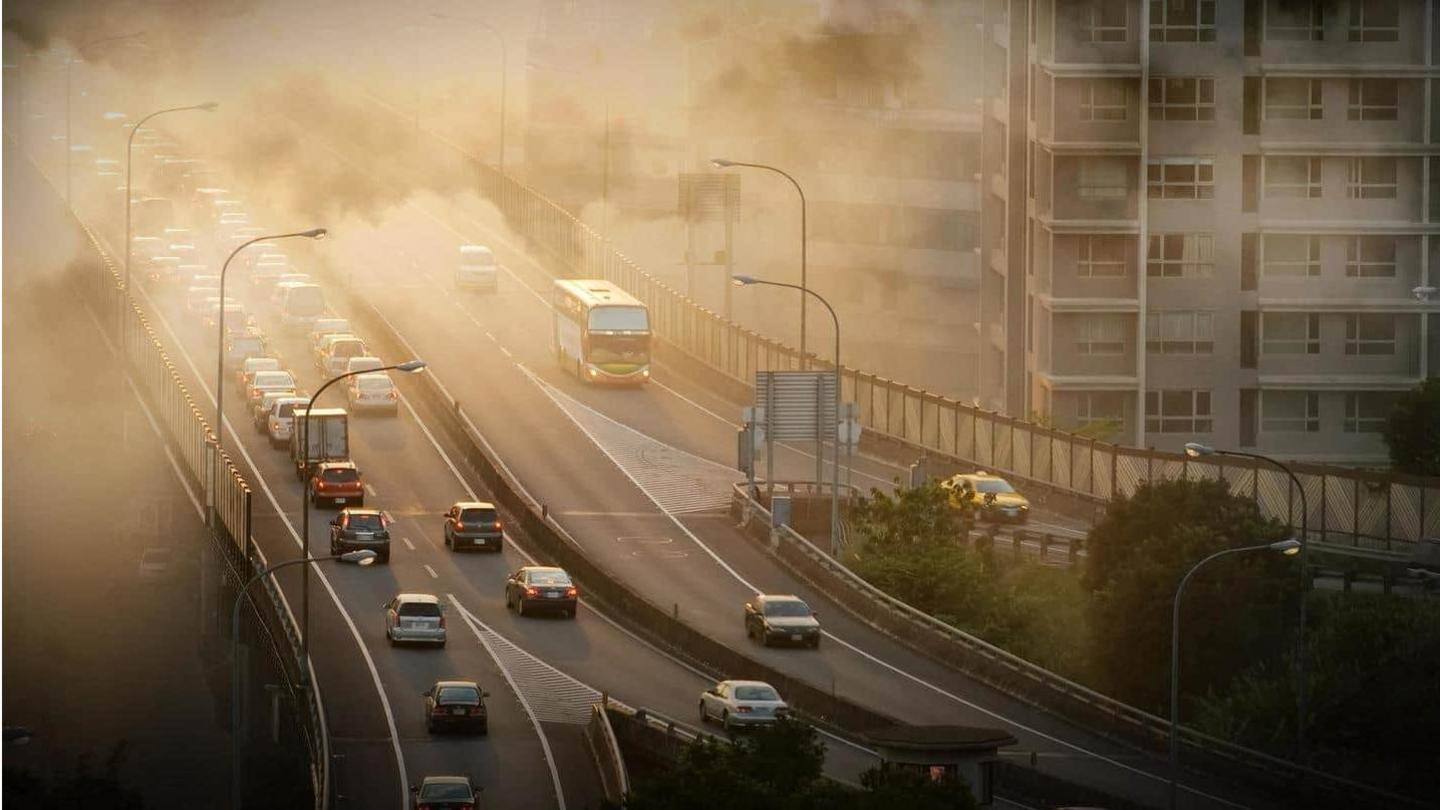
Delhi 's AQI remains 'severe' for third straight day
What's the story
Delhi's air quality remained "severe" for the third consecutive day after Diwali with the Air Quality Index (AQI) measuring at 436 on Sunday morning.
Delhi's air quality plummeted to a hazardous level after Thursday evening (Diwali day) with a very high concentration of pollutants PM2.5 and PM10.
Notably, many north Indian cities, too, have reported similarly high levels of air pollution.
Context
Why does it matter?
Home to nearly two crore people, Delhi's "severe" air quality is a serious health concern.
The air quality dipped after Diwali celebrations on Thursday.
The Delhi government has launched some "emergency measures" to check the rising air pollution in the city.
Reportedly, the city's doctors have also noticed a spike in cases regarding breathing trouble, wheezing, and coughing.
Details
Marginal improvement yesterday
Delhi's air quality witnessed marginal improvement on Saturday due to strong surface winds.
The city's AQI had improved from 449 at 8 am to 437 at 4 pm, according to the Central Pollution Control Board (CPCB).
However, farm fires contributed 42% of Delhi's PM2.5 pollution, the highest share this season.
Hence, the air quality remained "severe."
Information
What is a safe AQI level?
An AQI reading between zero and 50 is considered "good." Further, a reading between 51-100 is considered "satisfactory," followed by "moderate" (101-200), "poor" (201-300), "very poor" (301-400), and "severe" (401-500).
Government
Water sprinklers to help settle dust
On Saturday, the Delhi government launched certain "emergency measures" to curb pollution.
It deployed 114 water tankers to sprinkle water on roads to help settle the dust, one of the major contributors to air pollution.
It had also banned 92 construction sites for violating norms.
Earlier, the city had also issued a ban on firecrackers around Diwali, however, black-marketing continued.
Quote
Pollution sources under scanner: Minister
The latest steps were part of an action plan launched by Chief Minister Arvind Kejriwal last month, Delhi's Environment Minister Gopal Rai said. The campaigns to check the "local source of air pollution—be it dust, vehicle or biomass pollution," are ongoing, he said.
Cities
Pollution plagues North Indian cities
Delhi's neighboring cities have also reported high levels of air pollution post-Diwali.
In Noida, the AQI was under the "severe" category at 450.
Similarly, the AQI remained "very poor" in Uttar Pradesh's Kanpur and Moradabad.
Agra witnessed a rise in the number of people suffering from respiratory issues after Diwali, even as the city's AQI was recorded at 380 on Saturday.
Health issues
What are the health risks?
A worsened air quality presents a greater risk to those with pre-existing cardiac issues, Dr. Arun Mohanty told ANI. Dr. Mohanty is a professor of cardiology at Sir Gangaram Hospital.
Doctors report a 20% increase in cases of shortness of breath, wheezing, and incessant coughing, according to Hindustan Times.
Air pollution may also negatively impact those recovering from COVID-19, doctors said.